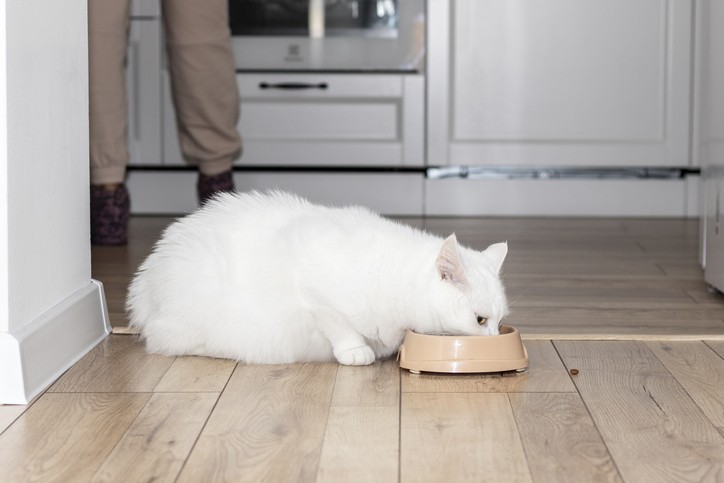
What Every Pet Parent Should Know about Cat Obesity
Do you have a cat? Are you concerned about their weight? Why is it important to pay attention to your cat’s weight and monitor for signs of obesity? What can happen if your cat becomes obese?
If you’ve ever wondered any of this, you’re in the right place. In the article below, you’ll find a quick list of information that can help you learn more about feline obesity. With the help of this guide, you’ll be well on your way to providing a healthier diet for your cat and ensuring your safety as well.
What Constitutes “Obese” in Cats?
Your cat’s breed or combination of breeds can help you determine the ideal body weight for your pet. Any cat is considered obese when they weigh 20% or more over the ideal body weight for their breed, sex, and age. For example, a female ragdoll cat weighs around 10 pounds. Therefore, they would be considered obese at 12 pounds. On the other hand, a male Maine coon could weigh up to 18 pounds ideally. Obesity in this situation would begin at around 21.5 pounds. If your cat is a mixed breed, your veterinarian will help you understand their ideal weight.
Causes of Feline Obesity
There are many different factors that could cause a cat to become obese.
Overfeeding
Overfeeding is the number one cause of obesity in cats. Many cat pet parents allow their cats to free graze their food throughout the day. If your cat can regulate their own food intake, this is fine; otherwise, however, they may end up eating as much food as you provide, every time, and this can increase their weight quickly. Too many treats and too much “human food” can contribute to obesity in cats as well.
Not Enough Physical Exercise
Cats should be kept indoors for their own safety as well as the safety of the wildlife around them. However, indoor cats rarely get enough exercise, so it is important to play with your cat every day. Playing interactively with your cat encourages them to stay active and helps with weight loss.
Aging
As cats get older, they may lose some of their metabolism. When this happens, they can be known to put on weight. However, in some instances, an aging cat may lose weight instead. It is important to understand your cat’s health and wellness needs and changes as they age.
Health Problems
Some types of health problems and conditions may contribute to weight gain in cats. Additionally, if your cat is taking long-term medication for a chronic health problem, the medication may cause weight gain or retention too. Talk to your veterinarian if you think your cat’s obesity may be caused by a health issue or a medication.
Risks of Feline Obesity
While obesity is not ideal for a cat’s body, what are some of the risks?
Heart Disease
Just like humans, cats are at a greater risk of heart disease when they are obese for too long. You can help decrease your cat’s risk of heart disease by keeping them at a healthier weight.
Arthritis
Arthritis may occur in any cat of any weight, but obesity increases a cat’s risk of this problem significantly. Since the cat’s joints and bones are doing more work than they should in an obese cat, the cat may be in more pain and may deal with more mobility issues as well.
Skin Problems
Obese cats are unable to groom themselves properly. Therefore, they develop mats in their hair, bacterial or fungal infections of the skin, and patchy hair loss. These signs often mean your cat is obese and needs to be put on a diet plan to get back to a healthier weight.
Urinary Tract Infections
Although urinary tract infections may occur in cats of any weight, they are more common in obese cats as well. Bladder stones, which are a dangerous urinary problem for cats, are also more likely in those that are obese.
Diabetes
Finally, diabetes is more common in obese cats, just like it is in humans. If your cat is obese for a long time, there is a high risk that they may develop diabetes. You should have your cat tested often, especially if they shows signs like increased thirst and excessive urination.
You Can Help Protect Your Cat from Obesity
Unfortunately, feline obesity is a common problem among house cats. A combination of food grazing and lack of exercise contributes to cats gaining too much weight and then never being able to fully lose it. However, with careful planning and attention, you can provide a safer and healthier environment for your pet.
If you need recommendations that are specific to your individual cat, book an appointment online to talk to your Boston Veterinary Clinic vet for more details. Since your vet knows your cat personally, you can work with the vet to choose the ideal food blend and exercise plan to keep your cat healthy.
Listen to this podcast from Dr. Brian Bourquin to learn more about pet diets, nutrition, and supplements!